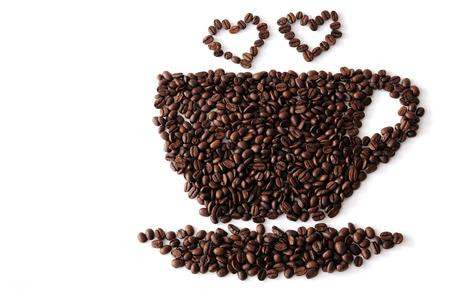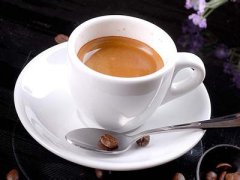Excessive consumption of caffeinated functional drinks may cause addiction and mental disorders

Background news
Recently, Red Bull drinks have experienced the storm of getting off the shelves and getting on the shelves. The official website of the State Drug Administration said: "as to whether the simultaneous use of sodium benzoate and caffeine in Red Bull beverages will be harmful to health, the expert group has demonstrated that the two raw materials are used in accordance with the approved amount of use. in line with the relevant national regulations; consumers are safe to use in accordance with the appropriate population, eating methods and consumption requirements marked on the label."
Although safety has been confirmed, he Rihui, director of the Department of Psychology and Addiction treatment Center of the Guangdong Armed Police Corps Hospital, said: "in fact, the real risk of drinking energy drinks is that their caffeine content is too high. Long-term heavy use may lead to addiction, or even some mental disorders." It is reported that every 250 milliliters of Red Bull contains 50 milligrams of caffeine, twice as much as cola, and its content is also higher than most coffee and tea.
Long-term high-dose caffeine intake can lead to mental disorders, which is a clear conclusion in pharmacology. He once received a case of addiction to Red Bull abuse two years ago. He was a 16-year-old boy in Guangzhou. Because of his special physical condition, he could not drink much water. He usually drank Coke, Red Bull and other drinks to quench his thirst. Later, he became addicted to Red Bull and drank more and more. Four years later, he drank an average of 10 bottles of 250ml Red Bull a day. At the time of seeing a doctor, he had obvious mental symptoms, such as auditory hallucinations and delusions of being victimized. Doctors ruled out other causes through consultation and finally confirmed that it was caffeine causing trouble.
According to he Rihui, there are very few such cases, and there is no need to panic. There is no problem for ordinary people to drink occasionally, but don't drink in large doses for a long time. There is no consensus on the reasonable dose of caffeine. It is recommended that adults drink no more than 300 milligrams per day, and the safe dose for teenagers is even lower. Studies have shown that teenagers taking more than 200 milligrams of caffeine a day can cause symptoms such as impatience, tension, tremors, insomnia and headaches. Long-term use can lead to high blood pressure, coronary heart disease and so on.
Related links
Wine caffeine is life-threatening.
At the end of 2010, the US Food and Drug Administration issued a statement saying it was unsafe to add caffeine to alcoholic beverages. At present, there have been records of young people dying and seeking medical treatment after drinking high levels of caffeine and alcohol. Australian health officials also said that functional drinks that contain a lot of caffeine and mixed with alcoholic beverages can do the same harm.
Because both caffeine and alcohol have reactions that make the heart beat faster. Among them, caffeine mainly affects the human nervous system, while alcohol has the effect of dilating blood vessels. When the two are mixed, the excitement will be superimposed, and the drinker's heart discomfort will be stronger. As the heart moves faster, people will feel that the heart beats faster, and the blood circulatory system will also accelerate, resulting in a sudden increase in the burden on the heart.
Important Notice :
前街咖啡 FrontStreet Coffee has moved to new addredd:
FrontStreet Coffee Address: 315,Donghua East Road,GuangZhou
Tel:020 38364473
- Prev

Coffee basic knowledge hamburger with coffee doubly harmful to health
We all know that Western fast food is not very healthy, but a new study published in the Journal of Nutrition at the University of Guelph in Canada has found that drinking coffee while eating Western fast food can be doubly harmful to your health. Western fast food, such as hamburgers, French fries, pizza and so on, contains a lot of fat. The study found that when healthy people eat a high-fat diet, their blood sugar levels soar, while those consumed with caffeinated drinks
- Next

Regular coffee drinking can cause snoring to get worse
Drinking coffee regularly can make snoring worse. Coffee isn't just a delicacy, it can also help people improve their productivity, but recent research has found that drinking coffee regularly can also make snoring worse. Snoring is what we commonly call snoring. Most patients are sleepy during the day and have no spirit. Patients with chronic illness may also have cardiovascular and cerebrovascular diseases, or heart disease, and organ function failure.
Related
- Beginners will see the "Coffee pull flower" guide!
- What is the difference between ice blog purified milk and ordinary milk coffee?
- Why is the Philippines the largest producer of crops in Liberia?
- For coffee extraction, should the fine powder be retained?
- How does extracted espresso fill pressed powder? How much strength does it take to press the powder?
- How to make jasmine cold extract coffee? Is the jasmine + latte good?
- Will this little toy really make the coffee taste better? How does Lily Drip affect coffee extraction?
- Will the action of slapping the filter cup also affect coffee extraction?
- What's the difference between powder-to-water ratio and powder-to-liquid ratio?
- What is the Ethiopian local species? What does it have to do with Heirloom native species?

